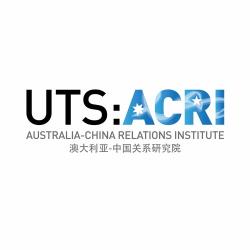Guest: Dr Jeffrey Wilson, Research Director, Perth USAsia Centre
Hosts: Professor James Laurenceson, Director, Australia-China Relations Institute, University of Technology Sydney; Elena Collinson, Senior Project and Research Officer, Australia-China Relations Institute, University of Technology Sydney
In the second episode of the UTS:ACRI Podcast’s new series delivering analysis of COVID-19 and its impacts within the context of the Australia-China relationship, James Laurenceson is joined by Jeffrey Wilson to discuss the economic implications of COVID-19 for Australian imports and for its foreign investment environment.
While the People’s Republic of China (PRC) is a significant producer and exporter of medical and pharmaceutical products, in value terms, it actually only accounts for five percent of global export supply. This compares to the EU at 47 percent and the US at 20 percent. Supply-chain risks with regard to medical goods arise from 1) a surge in demand from healthcare systems around the world, 2) the disruption of labour inputs to supply-chains arising from public health measures like lockdowns constraining supply and 3) export restrictions on medical goods, with one study showing more than 50 countries – including Australia – have now enacted such restrictions since the start of the year. These ‘beggar thy neighbour’ policies in particular lead to supply-chain issues for net-import dependent countries like Australia.
Another pertinent issue is that the geography of supply-chains is highly opaque. Import statistics only report the country from which a good is most recently imported, and goods can have components from multiple countries, making tracing a supply chain to its source difficult. This may result in unexpected shortages. Australian businesses need to be proactive in managing these risks by studying the geography of their supply-chains beyond the country of final import.
The complex geography of supply-chains also means that import statistics, which report the last country in which value is added to a good, tend to exaggerate the PRC ‘dependency’. This reflects the PRC’s disproportionate role in industrial multi-country value chains as the ‘final assembler’. This means that meaningfully reducing risks in supply-chains requires consideration around more than just changing the country of ‘final assembly’.
After over half a century of relatively smooth global trade of the global trade system, COVID-19 has also precipitated a renewed reflection on the role of governments in ensuring supply of strategic goods, particularly around questions of how ‘strategic’ is defined and how to ensure government intervention is balanced with market efficiency.
COVID-19 has also led to financial distress for many companies at a point where private capital markets also face constraints. In this environment, companies with access to public or government financing therefore retain an advantageous capacity for acquisitions. It is important to note that such companies are not unique to the PRC and exist in many countries around the Asia-Pacific region, particularly in strategic industries. It is also important to note that recent legislative changes around foreign investment do not represent an outright ban on foreign investment from the PRC, given their clear linkage to current circumstances and government statements welcoming investment. And ultimately, whether there is an overall trend towards greater restriction on foreign investment will be seen in the government’s decisions on individual investment cases, rather than the legislation itself.
Summary written by Michael Zhou, Project and Research Officer, Australia-China Relations Institute, University of Technology Sydney.
Technical production by Amy Ma, Communications Officer, Australia-China Relations Institute, University of Technology Sydney.
Theme music by Sam J Mitchell.


